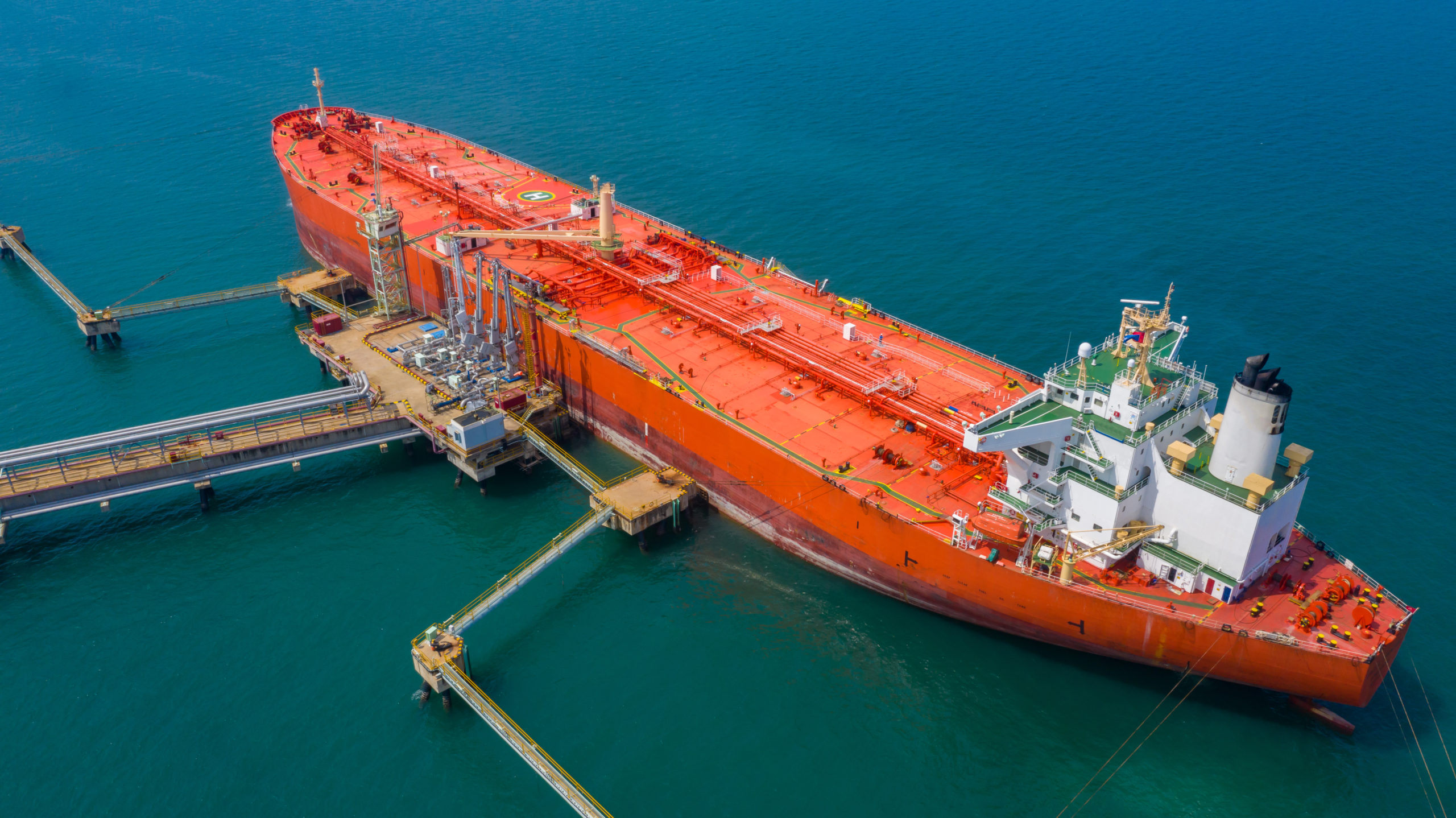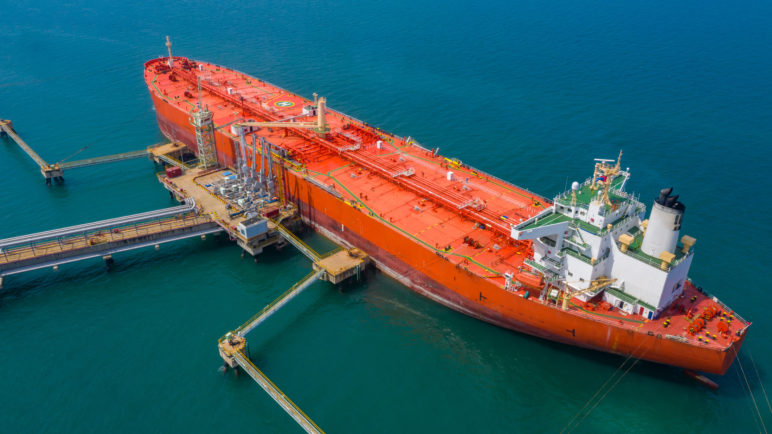Strange as it may seem in late 2020, officials in Washington are still weighing plans to permit an enormous fossil fuel project, a Kalama petrochemical refining and export facility. The project is designed and backed by by a company called NW Innovation Works (NWIW) that is, through a complicated arrangement, actually an arm of the Chinese government. It is a case study in the way that a big company—including one controlled by a foreign government—can muscle its way into political advantages.
A review of NWIW’s actions in Washington reveals influence peddling, political spending to curry favor, and worrisome entanglements with current and former government officials. All of it is coming at a cost to the public—directly in the form of taxpayer subsidies and indirectly in the form of eroded trust in government. Both Democratic and Republican officials have engaged in concerning activities to support the project.
A review of NWIW’s actions in Washington reveals influence peddling, political spending to curry favor, and worrisome entanglements with current and former government officials.

Richard DeBolt is Exhibit A. Among the project’s biggest boosters is Republican state legislator Richard DeBolt who has for years served as representative for the 20th District, which includes Kalama, while simultaneously employed as NWIW’s director of external affairs. State ethics rules prevent NWIW from paying DeBolt to vote for legislation favoring the project. They also forbid NWIW from paying DeBolt to lobby state officials, including the Department of Ecology, for a permit. Yet there is reason to believe that’s exactly what he was doing. Emails obtained by the advocacy group Columbia Riverkeeper show that NWIW referred to DeBolt as the company’s “point guy with Ecology on the Kalama [methanol] matter since the beginning,” and public records show that DeBolt met numerous times with agency officials and others in the executive branch. DeBolt continues to serve in the legislature while employed by the company, where records show that he earns more than $120,000 annually.
Runner up is Brian Bonlender. Head of the Washington Department of Commerce under Governor Jay Inslee from 2013 to 2019, it was under Bonlender’s guidance that the state courted (and Governor Inslee initially supported) the Chinese company as it laid plans for a buildout of three petrochemical projects in the region, including what would have been the world’s largest methanol refineries to be sited in Kalama, Tacoma, and northwest Oregon. A 2016 article in the Tacoma News Tribune provides a detailed look at the array of political leaders and government officials who coordinated to bring the projects to Washington noting that then-Commerce Secretary Bonlender bragged about his success saying, “These projects may well not be a possibility were if not for our engagement with them, and the company is more than willing to say as much publicly.”
Just days after Bonlender left Commerce in 2019, he launched a strategy and lobbying firm working for a range of clients with an interest in state policy issues. Although his public disclosure reports do not record any direct payments from NWIW for lobbying, he appears to still be working to support the project, testifying in at least two public meetings in its favor.
In addition to working with DeBolt and Bonlender, NWIW also coordinated with local officials, like George Raiter, who served as Cowlitz County Commissioner for twelve years. Just after he stepped down from public office, the company hired Raiter as Outreach Director while the project was undergoing its first Environmental Impact analysis, a review that was co-led by Cowlitz County. That was later deemed inadequate by the state after the Department of Ecology determined that “the backers of the project failed to provide complete, adequate information to state regulators.”
NWIW’s political influence campaign extends to the US federal government. In 2016, soon after NWIW announced its project plans in the Northwest, the company awarded a paid position on its “Global Advisory Board” to Democrat Gary Locke, a former two-term governor of Washington and, during the Obama Administration, US Secretary of Commerce, and later, US ambassador to China. It also recruited to the Board David Sandalow, formerly the Acting Under Secretary of Energy for President Obama. Locke appears to still sit on the board, though Sandalow has apparently left. It is not clear precisely what was Sandalow’s role with the project. Some advocates worried that he could use his influence in the Energy Department to win taxpayer subsidies for the methanol project since NWIW has applied for more than $2 billion in loan guarantees from the US Department of Energy, which would put the federal government on the hook if the company is unable to repay the loans.
Many project opponents have raised similar concerns with Rick Desimone who for many years was Chief of Staff for Democratic Senator Patty Murray. Desimone went to work for NWIW as “Senior Advisor” for the Kalama petrochemical project around 2016, a capacity in which he met with Chinese officials and clashed with public interest advocates opposing the project. As it happens, the Port of Kalama is applying for tens of millions of dollars in federal grants and loans to fund new infrastructure to support the project, while Desimone’s former boss, Senator Patty Murray, formally asked the US Secretary of Transportation to approve the funding in May 2020.
Access to federal money has already paid handsomely for the company. When the COVID pandemic hammered the economy in early 2020, NWIW was quick to get in line for taxpayer support. The parent company of NWIW, Pan Pacific Energy, received between $150,000 and $350,000 in US CARES Act loans after federal government approval in April 2020. According to Propublica, the loan was to maintain eight jobs, a debt that can be forgiven entirely under certain circumstances, especially if the payments to employees are documented.
Yet, in spite of apparently needing taxpayer money to stay afloat, the company has plenty of cash to spend on a political influence campaign. Throughout 2020, lobbyist Isaac Kastama has been picking up a check for $4,000 from NWIW every month. Seattle-based environmental strategist Michael Mann does not report lobbying payments from NWIW, but he is also active in support of the project, testifying at public hearings and sending emails to drum up support just as Bonlender has been.
Just so, the public bailout in 2020 did not seem to impede the company’s strategy of injecting money into state politics. Prior to the pandemic, over the course of 2019 and 2020, using at least four variants of the name of its parent company, “Pan-Pacific Energy,” the firm dumped $21,000 into candidate races, spreading the money around to a range of Democratic and Republican candidates for office, as well as the official campaigns for both parties in both houses of the state legislature. It was perhaps not surprising that several of the recipient legislators called for fast-track permitting for the Kalama petrochemical project in a joint letter.
As the 2020 election cycle heated up, cash continued to flow from NWIW to political campaigns. On October 9, 2020, the firm passed $50,000 to the Southwest WA Priorities PAC, earmarked to reelect two friendly candidates in the 19th legislative district, Democrats Dean Takko and Brian Blake, this time filing the donation under the name “Northwest Innovation Works.” (Using different names for political spending makes it hard for the public to use state’s disclosure records to see a donor’s full range of activities.)
Not that the company neglected the other side of the aisle. Also on October 9, filing its campaign contribution under yet a different name, “NW Innovation Works,” the company gave $9,500 to The Leadership Council, a conservative PAC that has come under fire for allegedly hiding campaign contributions. And, in October and November 2020, filing as two variants of “Northwest Innovation Works,” the company made a series of direct contributions to ten Republican candidates for the legislature, shelling out $500 apiece to Brandon Vick, John Braun, Larry Hoff, J.T. Wilcox, Matthew Boehnke, Jim Walsh, Mary Dye, Jeremie Dufault, Ed Orcutt, and Paul Harris.
State policymaking is clearly important to the project’s backers, both because state agencies control its permitting and because the project has relied on the State of Washington for its investment capital. The Washington State Investment Board has invested at least $400 million of pensions and other public monies in a private equity fund that has an exclusive option to finance construction of the Kalama methanol project. In fact, that private equity fund was, at least for a time, the sole investor in the project other than the Chinese government. What’s more, a variety of tax loopholes—giveaways that have been assiduously maintained by the state legislature—will allow the company to avoid paying taxes on the vast majority of the project’s construction costs and all of its methanol sales.
It might be tempting to dismiss NWIW’s influence peddling as business-as-usual in American politics. But the Northwest should do better.

It might be tempting to dismiss NWIW’s influence peddling as business-as-usual in American politics. But the Northwest should do better. We can aspire to a fairer system that does not let political heavyweights muffle the voices of those who could become unwilling neighbors to a petrochemical refinery, like the Cowlitz Indian Tribe that worries the project will harm its resources, or a historic cemetery that may be subjected to eminent domain for a gas pipeline on behalf of a subsidiary of the Chinese Government.
If there is any bright spot with government oversight of the methanol project, it is Washington Governor Jay Inslee. Although he initially supported the methanol projects, Inslee has since done something that is very difficult for politicians, especially when facing what is presumably tremendous pressure from within his own party: he changed his mind.
In May 2019, as new information about the project emerged, and as the staggering scale of its climate impact became clear, Inslee came out in opposition to the project saying, “The age of consequences is upon us. We have to act based on clear science.”
Thanks to Zane Gustafson who provided research assistance for this article.
For press inquiries and interview requests, please contact Anna Fahey.
Sightline Institute is a 501(c)3 non-profit organization and does not support, endorse, or oppose any candidate or political party.











Cass Martinez
I wonder how many Washington decision-makers went on NWIW-sponsored trips to China? Quite a few went from Columbia County in Oregon.
Econoclast
Cass,
I am working on this and would appreciate if you can give me some names of those in Columbia County.
Thanks.
davidhupp@charter.net
Cass Martinez
The dozen in the photo are not the only Northwesterners who accepted trips overseas to speak with Chinese government officials about the proposed methanol plants:
https://pamplinmedia.com/scs/83-news/227507-90012-china-on-the-columbia